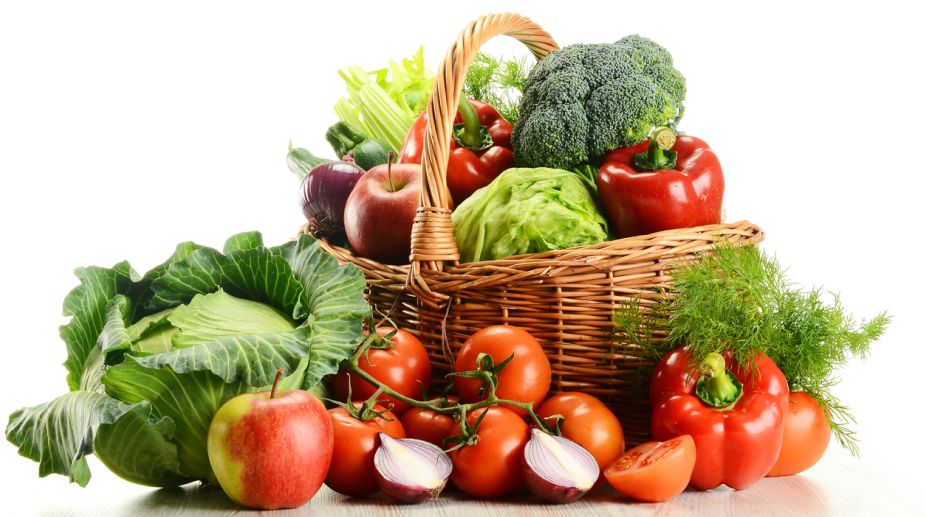Eat kale, cauliflower, broccoli to ease lung infection: Study
Researchers at the Francis Crick Institute found that the AHR -- aryl hydrocarbon receptor -- is a protein found at barrier sites like the gut and the lung.
Vegetables can supply countless potentially beneficial compounds, besides vitamins and minerals.

vegetable basket close up
Developing healthy eating habits and including an array of colourful vegetables in daily diet is not as difficult as many people believe. Eating foods derived from plants build a vigorous lifestyle. Not all the nutrients have been identified in every vegetable. So eating a wide assortment will ensure that you get most of the nutrients vital for your body that will help increase your immunity towards various diseases.
Advertisement
Onion: This vegetable is really rich and has cancer-fighting antioxidants. The best way is to eat it raw, as cooking onions at a high temperature significantly reduces the benefits of phytochemicals present in it that protect the body against lung and prostate cancer.
Advertisement
Sweet Potato: Sweet potato is rich in dietary fibre, which helps in reducing blood sugar that ultimately reduces the belly fat. The best way to benefit from sweet potato is to eat it without peeling off its upper layer, as it possesses healing potential with its high levels of vitamin A, beta-carotene and high potassium content.
Peas: Peas are powerhouse of nutrition and are a boon for your health. Green peas are a very good source of vitamin K, manganese, dietary fiber, vitamin B1, vitamin C, and phosphorus. They are low in fat and high in protein and fibre.
Beets: Beets are high in immune-boosting vitamin C, fibre and essential minerals like potassium and manganese, which are good for your bones, liver, kidneys, and pancreas. Beets also contain B vitamin folate, which helps reduce the risk of birth defects.
Beans: Beans are a great source of nutrition. They contain lysine, an essential amino acid that helps the body to convert fatty acids into energy and lower cholesterol. They also contain folate and vitamin B that may affect neurotransmitters that can boost your mood.
Pumpkins: Pumpkins contain essential nutrients such as folic acid, manganese, vitamin C and zinc. These nutrients may boost vision, lower blood pressure and protect heart health. Eating it may make you sleep better.
Broccoli: Broccoli is a great source of vitamins K, vitamin C, and folic acid. Vitamin C is a powerful antioxidant and protects the body from damaging free radicals. It also provides potassium and fibre required by the body for a healthy living.
Spinach: Spinach contains antioxidants that combat free radicals. It also contains a great deal of potassium, which increases the speed of signals between neurons, helping our brains to be more responsive. Loaded with vitamin C, it helps the body fight infection and increases the levels of antioxidants.
Red Bell Pepper: The highest amount of Vitamin C in a bell pepper is concentrated in the red variety. Red bell peppers contain several phytochemicals and carotenoids, particularly beta-carotene, which lavish you with antioxidant and anti-inflammatory benefits.
Corn: High in fibre and low in fat, corn is a great source of essential nutrients offering an array of health benefits.
Aim for three cups of vegetables a day including green, orange, red, purple and yellow produce. It is best to eat them in place of calorie foods. Be mindful of what you eat, it may help you eat less and enjoy more.
Veggies are satisfying! Aren’t them?
Advertisement